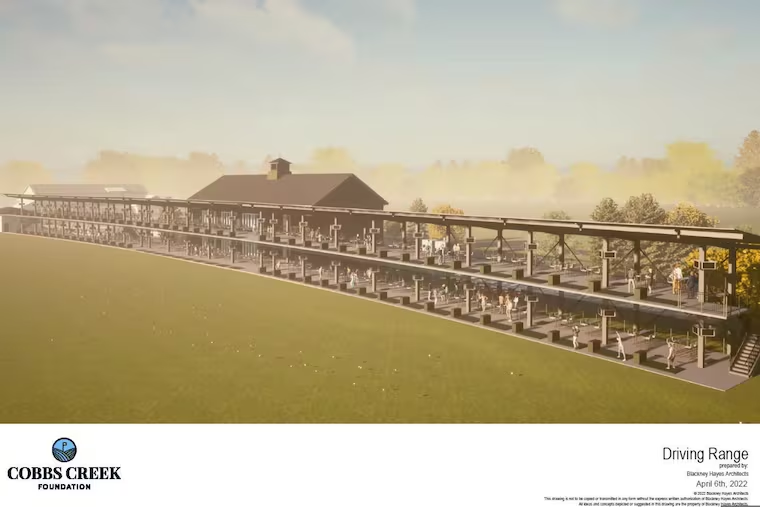Philly City Council reconsiders environmental exemptions on Cobbs Creek Golf Course redevelopment
The exemption of the city’s steep slope law would have applied to the entire course, which outraged some local residents still angered over the city’s clear-cutting of trees for the course.

Philadelphia City Council could reconsider at least some parts of an ordinance that would have exempted a private nonprofit undertaking a $65 million renovation of the city-owned Cobbs Creek Golf Course from a city environmental law designed to prevent erosion.
The exemption of the city’s steep slope law would have applied to the entire course, which outraged some local residents still angry about the city’s clear-cutting of trees at the site.
» READ MORE: Clear-cutting woods for Philadelphia’s Cobbs Creek Golf Course project angers local group and birders
Council is seeking possible revisions of the ordinance that would create a special district that would overlay the course.
Though council accepted public testimony and comment, it could not vote on the ordinance until after a later meeting by the Planning Commission, which had to give its approval for the overlay district to be created. The commission subsequently voted to approve it. So Council must now vote on final adoption.
The Cobbs Creek Foundation, the nonprofit financing the renovation of the historic course, says the exemption is needed to restore wetlands and complete some parts of the course. Once the course is complete, the foundation would lease it back from the city for $1.
Opponents say that giving a complete exemption would violate the spirit of the ordinance.
“The ordinance if passed would create a dangerous precedent of using overlay districts to carve out exemptions to core environmental protections,” Larry Szmulowicz, an attorney who lives near the course, testified at Council’s session Thursday. “Steep slope protection is an environmental protection … to promote safe and compatible development throughout the city.”
Szmulowicz noted that the foundation previously applied for a zoning permit to cut 108 acres of trees on the slopes but was denied. It later withdrew the application.
Councilmember Curtis Jones Jr. then introduced the legislation to create the overlay district.
Henry Davis, a member of the Eastwick Friends and Neighbors Coalition, also spoke against the exemption.
“What specifically concerned me about the proposed bill is the lack of public input and transparency and the potential for increased flooding and other environmental impacts,” Davis said.
Several other residents also spoke against granting the exemption.
But officials for Parks and Recreation, which owns the land, have said the overlay district is needed to rebuild three miles of creek bed and to help restore the Cobbs Creek Golf Course back to its historic 1916 design. The foundation said it is putting in $20 million in improvements to the creek area and creating 37 acres of wetlands to ease chronic flooding, which forced closure of the course in 2020.
Enrique Hervada, chief operating officer for the Cobbs Creek Foundation, speaking in favor of an exemption, told Council that the golf course, which opened in 1916 and is in the National Black Golf Hall of Fame, “literally was falling into a creek” and that the renovation is being done “with no cost to the city.”
“We’ve been working on this for over 10 years with Parks and Rec, the Water Department of Philadelphia, and many other experts on creating a sustainable golf course,” Hervada said, noting that the course would not only boast a new multitiered driving range but also a 30,000-square-foot education center for children in the area.
Morgan Moore, the foundation’s director of education and community engagement, said the golf course would benefit area residents and “has a significant history of racial equity.”
“I urge our City Council people to vote in support of this bill unanimously,” Moore said.
This story has been updated to reflect that the city’s Planning Commission gave its approval for the overlay district to be created.